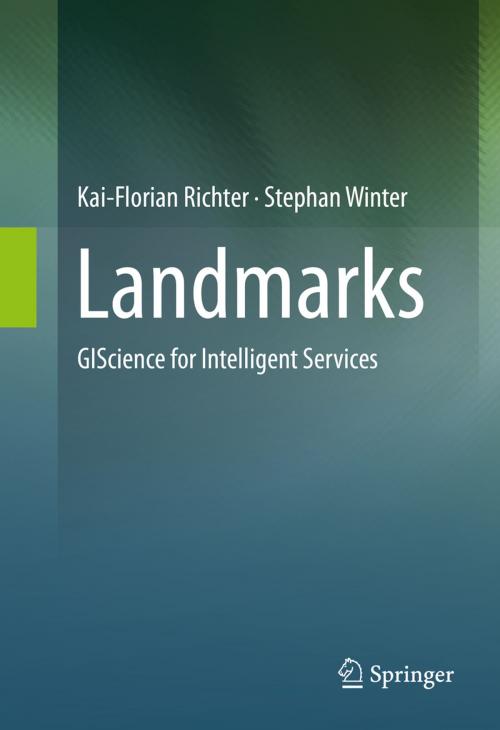Landmarks
GIScience for Intelligent Services
Nonfiction, Science & Nature, Science, Earth Sciences, Geography, Computers, General Computing, Internet| Author: | Kai-Florian Richter, Stephan Winter | ISBN: | 9783319057323 |
| Publisher: | Springer International Publishing | Publication: | April 25, 2014 |
| Imprint: | Springer | Language: | English |
| Author: | Kai-Florian Richter, Stephan Winter |
| ISBN: | 9783319057323 |
| Publisher: | Springer International Publishing |
| Publication: | April 25, 2014 |
| Imprint: | Springer |
| Language: | English |
This book covers the latest research on landmarks in GIS, including practical applications. It addresses perceptual and cognitive aspects of natural and artificial cognitive systems, computational aspects with respect to identifying or selecting landmarks for various purposes, and communication aspects of human-computer interaction for spatial information provision. Concise and organized, the book equips readers to handle complex conceptual aspects of trying to define and formally model these situations. The book provides a thorough review of the cognitive, conceptual, computational and communication aspects of GIS landmarks. This review is unique for comparing concepts across a spectrum of sub-disciplines in the field. Portions of the ideas discussed led to the world’s first commercial navigation service using landmarks selected with cognitive principles. Landmarks: GI Science for Intelligent Services targets practitioners and researchers working in geographic information science, computer science, information science, cognitive science, geography and psychology. Advanced-level students in computer science, geography and psychology will also find this book valuable as a secondary textbook or reference.
This book covers the latest research on landmarks in GIS, including practical applications. It addresses perceptual and cognitive aspects of natural and artificial cognitive systems, computational aspects with respect to identifying or selecting landmarks for various purposes, and communication aspects of human-computer interaction for spatial information provision. Concise and organized, the book equips readers to handle complex conceptual aspects of trying to define and formally model these situations. The book provides a thorough review of the cognitive, conceptual, computational and communication aspects of GIS landmarks. This review is unique for comparing concepts across a spectrum of sub-disciplines in the field. Portions of the ideas discussed led to the world’s first commercial navigation service using landmarks selected with cognitive principles. Landmarks: GI Science for Intelligent Services targets practitioners and researchers working in geographic information science, computer science, information science, cognitive science, geography and psychology. Advanced-level students in computer science, geography and psychology will also find this book valuable as a secondary textbook or reference.















